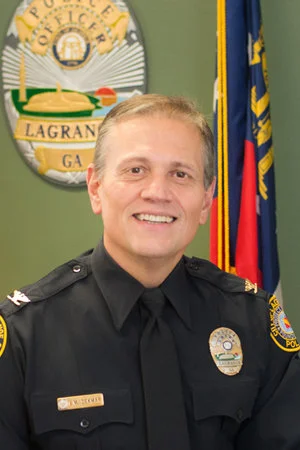Mass incarceration in the U.S. created crisis conditions in prisons everywhere, and modern prison systems now have to address much more than just locking inmates up.
Read MoreKillings of unarmed black people by police have worsened historically troubled police-community relations. Until recently, little research existed that might help explain this or improve the situation. Social psychologists have created work that helps us understand why things go wrong in policing, what role race plays, and how we can do better.
Read MoreAfter riots erupted Ferguson in 2014, investigations revealed that the entire criminal justice system in St. Louis County – not just the police department – levied massive amounts of fines and fees on its poorest citizens in order to fund itself. It was a wake-up call, but one organization had been in place working on these issues for five years.
Read MoreThe federal government doesn't record anything when police shoot civilians, and there's no official national database to tell us how big or complex the problem is.
One newspaper journalist says he learned a lot requesting documents from more than 400 jurisdictions in his home state alone. In six years and more than 800 shootings, not one incident resulted in criminal charges.
Read MoreJames Comey wasn’t the nation’s embattled former FBI Director in 2002; he was the top federal prosecutor in Manhattan. It was around then that he gave a speech to a group of fellow attorneys -- men and women with impeccable courtroom records. He had a few... harsh words.
Read MoreWe hear it all the time: law enforcement needs to change for the 21st century. But what does "21st century policing" actually mean, and how would that police department be different than what we have now?
Read MoreIn the last 25 years, DNA has become a tool of unparalleled power, solving the coldest cases and overturning guilty verdicts based on faulty forensics, false confessions, and bad eyewitness identification. But a new process for analyzing DNA using computers means that now, DNA can be even more powerful, faster and more accurate.
Read MoreA chief of police has to lead officers toward a strong relationship with the communities they serve, but in the past, the same department may have participated in or enforced racial discrimination and injustice.
Read MoreBeing a federal judge is a lawyer’s dream job – lifetime tenure, sophisticated cases and a good salary, too. So why did a well-respected federal trial judge in Tennessee give it all up just six years in?
Automatic license plate readers – those cameras on police cars and light poles that capture plate numbers – have been in widespread use since the 1990s. But some argue regulations for how and how long police can use and store that information hasn’t kept up with the technology.
Read MoreAttorney General Jeff Sessions announced the end of federal efforts to fix forensic science in April, but not because the problems were solved. Why shut down the National Commission on Forensic Science now, just as better scientific standards were emerging? And what will it mean for wrongful convictions?
Read MoreThe Trump administration has promised a return to "tough on crime" criminal justice policies, including a recent memo that instructs federal prosecutors to reverse Obama era reforms meant to curb mandatory minimum sentences.
Read MoreDrone aircraft were developed as weapons of war, but now they have begun to find their way into domestic police work as well. Drones can help officers trace suspects or missing persons and could assess threats like toxic spills. But they pose a threat to privacy and criminal justice standards, too.
Read MoreThe exposure of wrongful convictions began in 1989, and it upended the idea that guilty verdicts were always trustworthy. When there’s a wrongful conviction, what has to happen to get a court to exonerate someone?
Marissa Boyers Bluestine is the Litigation Director for the Pennsylvania Innocence Project, and she tells us what it’s really like, on the ground, working to establish innocence – after a guilty verdict.
Read MoreThe last few years have exposed problems in policing: use of force, high-tech surveillance, and a lack of transparency. Our guest argues that the fault for this lies not just with the police, or the courts – it’s on us.
Read MoreAmericans who live in high-crime neighborhoods often get portrayed as anti-police, but an Urban Institute study released in February shows something different: strong respect for the law and a willingness to help with public safety.
Read MoreAmerican juries are composed of 12 ordinary citizens tasked with bringing justice to the downtrodden and common sense to the law – no easy job. But who actually gets to serve? Research out of North Carolina shows some people get removed from jury pools much more often than others.
Read MoreRacial reconciliation – an attempt to speak plainly about racial strife between police and citizens of color – is a necessary step toward comprehensive police reform. It’s important, and no doubt difficult – but what does it actually look and feel like on the ground?
Aseante Hylick builds these conversations across the U.S.
Read MoreEfforts to oversee police several decades ago resulted in hundreds of complaint review boards that investigate individual complaints. But a new type of oversight is gaining traction – one in which appointed civilians look at whole departments and how they do their jobs.
Read MoreWhen a group of people is given great power to watch over the rest of us, how do we make sure they use that power correctly?
Pittsburgh’s Citizen Police Review Board was created in 1997 to do just that. Its investigators weigh in on individual complaints and issue findings independent of city leadership and department administrators.
Read More



















